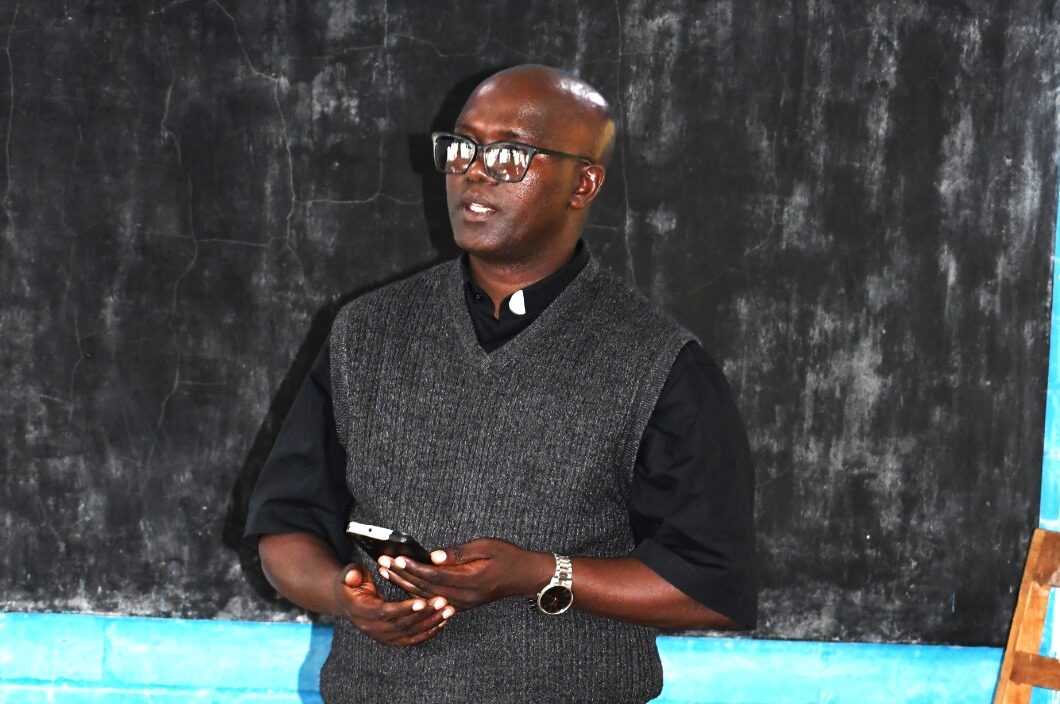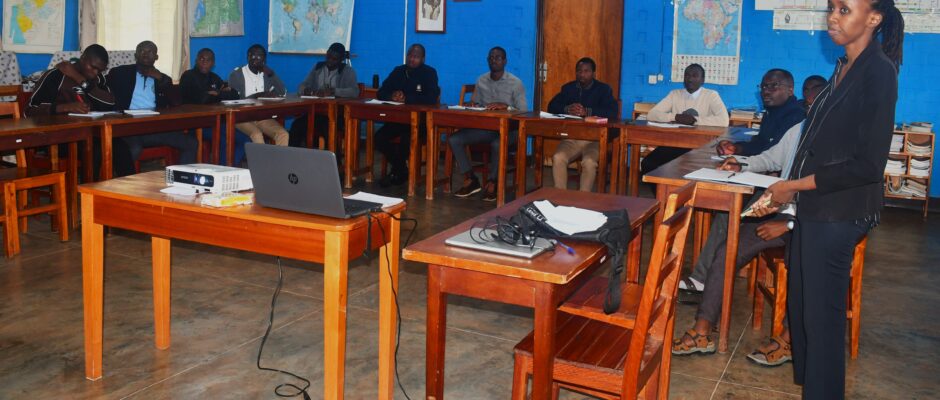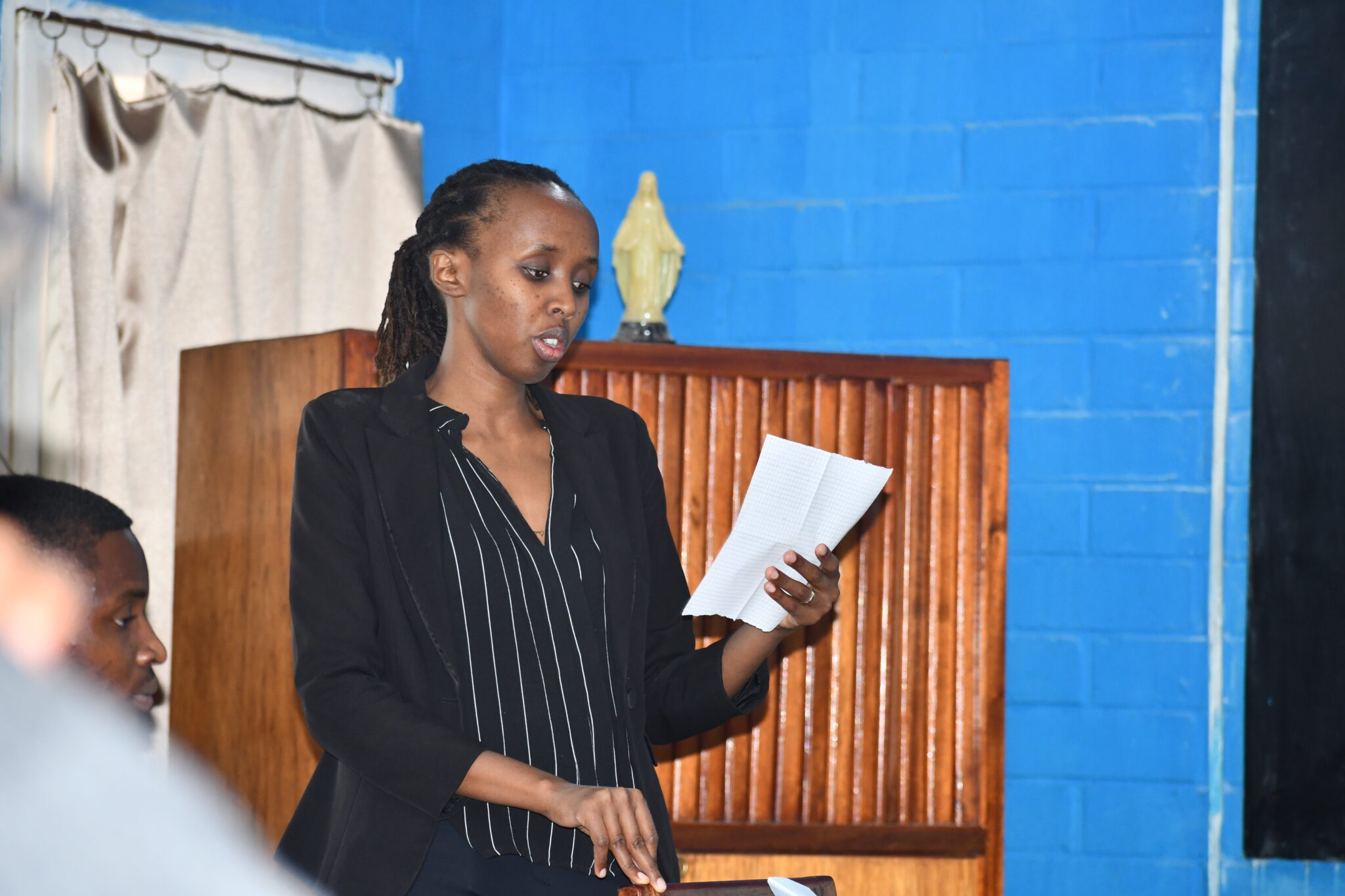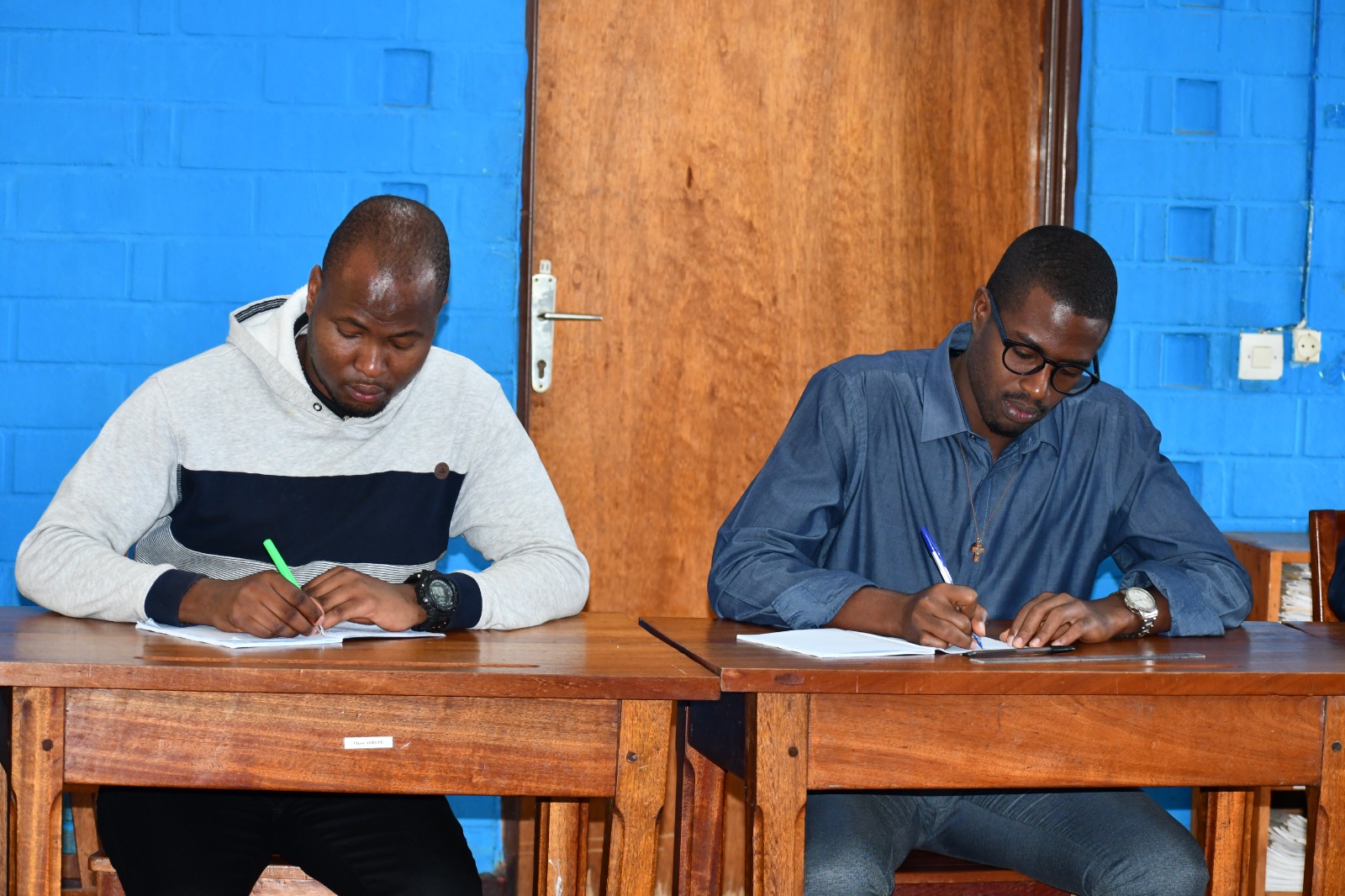Training Future Priests to Protect the Children and vulnerable adults
From 18 to 20 August 2025, a training session on the safeguarding of minors and vulnerable adults was held at the Jesuit Novitiate, Notre-Dame de la Route in Cyangugu, Rwanda. Intended for the novices, this training responds to the Society of Jesus’ commitment to fostering a culture of vigilance and responsibility within its institutions—especially in line with the painful context of abuses committed by members of the clergy and religious life in recent decades.
A Training Rooted in Listening and Memory
The session began with a personal exercise inviting all the novices to share significant memories from their childhood. This moment of introspection allowed each participant to reflect on the fragility of early life and the importance of preserving the dignity and integrity of the smallest among us, in all pastoral activity. These exchanges created an atmosphere of deep listening and mutual respect
Understanding to Better Prevent
Then, the facilitator, Mrs. Marie Ange Nsabimana—the Province Director for the Protection of Minors and Vulnerable Adults, presented the theological and legal foundations of safeguarding in the Church, various forms of abuse, their signs, psychological and spiritual consequences. Finally, concrete measures for prevention and case reporting were explored in depth.
 Forming the Heart: Humility and Gentleness
Forming the Heart: Humility and Gentleness
At the end of the session, the Novice Master, Fr Bernard Karerwa, SJ, reminded his companions that safeguarding is not limited to procedures. It requires a true conversion of the heart, a gaze of compassion and a deep commitment to human dignity. He invited them to cultivate, in the image of Christ, humility and gentleness—essential conditions for a priestly ministry that is safe, respectful, and credible.
A Safer Church Is Possible
This training marks an important step in preparing future priests to become responsible servants—aware of the wounds of history, yet looking forward with hope to a future where every person, especially the most vulnerable, can feel safe within the Church.
by Laura Dusingize







